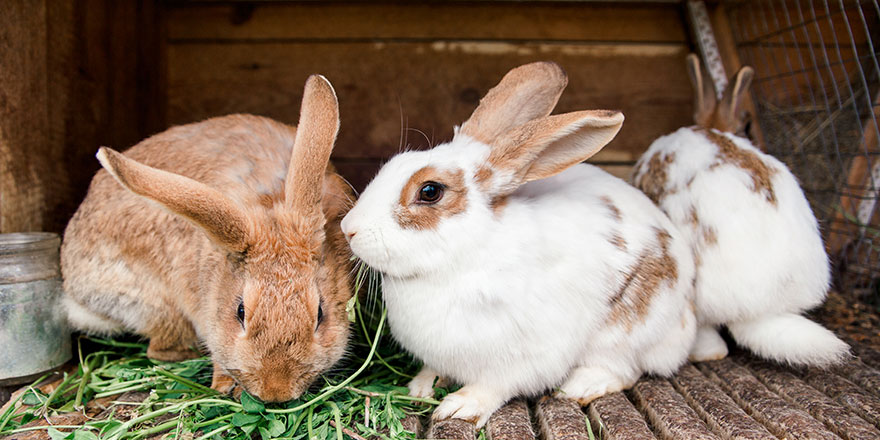The elevated temperatures caused by climate change are showing evidence of causing health complications for small pets such as rabbits, guinea pigs, and cats as a result of being overwhelmed by heatstroke.
Many pet owners are misinformed when it comes to the subject of heat stroke, with a wide range of people believing that only dogs are affected by heatstroke in hot weather conditions. However, due to recent escalations in heatstroke cases for other types of pets, experts are warning the public that the same risk of the condition is posed to smaller pets with more delicate constitutions.
A recent study has exposed the dangers of high temperatures with not only dogs but also rabbits, ferrets, cats, and guinea pigs all of whom have been admitted to vets all around with heatstroke symptoms.
The researchers involved in the study have decided to put forward their results in an effort to stress the importance of caring for your pets properly in the summertime. It is strongly stressed by said researchers that the public’s awareness of heatstroke in pets of all kinds and sizes needs to be raised in order to avoid cases rising once again as the warmer weather sets in.
For pet owners worried that their own pet may be suffering from heatstroke, the symptoms include: lethargy, breathing difficulty, rapid breathing/panting, diarrhea, collapsing, chronic thirst, slobbering, and distress behavior.
It is believed that caged pets such as ferrets and guinea pigs are at risk of developing heat stroke due to their living situation. Being confined to a cage, especially one that has been placed incorrectly in the home, causes the animals inside of it to be restricted and potentially trapped in a beam of sunlight and direct heat with no access to shade.
Furthermore, animals will actively seek a cooler space, much like humans, when they become too warm and a cage prevents them from doing just this, leaving them stuck in a hot environment with no escape. This can not only lead to heatstroke, but it can also cause unnecessary stress and anxiety for your pet.
Dr. Anne Carter, an English researcher from Nottingham Trent University has spoken on the matter explaining the general misconception that heatstroke is only really a danger when it comes to leaving dogs in hot cars. Carter stresses that more certainly needs to be done to raise the public’s awareness of heatstroke and its commonality among not only dogs but a variety of other pets.
“Owners of small animals such as rabbits, ferrets, and guinea pigs may need to review their pet’s housing and take steps to keep their pets cool in the warmer months to reduce the risk of heatstroke,” Carter told The Guardian.
A selection of data from vets across the United Kingdom showing heatstroke cases in small animals between 2013 and 2018 was analyzed by a research team at Nottingham Trent University. The data also included risks and triggers at the time of admittance and brought to light that the worst-affected pets overall were dogs, showing 146 cases within the 5-year period.

The majority of the cases (three-quarters) were the direct result of the dog being over-exercised by its owner, while 7% of cases represented heatstroke in dogs left in hot cars. It was also found that the dog breeds most likely to be affected by excessive heat are flat-nosed and flat-faced breeds such as pugs and bulldogs, with 20% of the cases being for dogs of this type.
Among the case data were sixteen cats, most of which were over the age of 15-years, who had also experienced heat stroke to varying degrees. The remaining cases contained a ferret, three rabbits, and eight guinea pigs. Additionally, researchers discovered that the most easy-affected rabbit breeds also seem to be from flat-nosed breeds, as all three of the rabbits listed were of this breed type.
Flat-faced animals breeds are generally more susceptible to developing breathing problems, and therefore are more likely to experience respiratory difficulty when trying to cope with the effects of heatstroke. Emily Hall, a veterinarian, and researcher has also spoken on the matter. “Heat-related illness can affect all pets and is likely to become more common as global temperatures rise.”
Smith goes on to explain that brachycephalic [flat-faced] dogs and rabbits appear to be overrepresented throughout their study. This shows the need for owners of flat-faced animals to take extra care in particularly hot weather to help their pets cope with the heat more easily. Vigilance is key.
It should also be stressed that the figures for heatstroke will likely be significantly higher than this study has shown owing to the fact that the information used was obtained via the Small Animal Veterinary Surveillance Network (Savsnet), which only contains the figures provided by participating veterinary clinics.
Heatstroke cases are also often left undiagnosed owing to owners being unable to recognize the signs and seek treatment – hence the importance of understanding the symptoms in order to get your pet the necessary care.
It’s possible to find the full study, which also included researchers from the University of Liverpool, in the Open Veterinary Journal.
Note: The advice provided in this post is intended for informational purposes and does not constitute medical advice regarding pets. For an accurate diagnosis of your pet's condition, please make an appointment with your vet.

